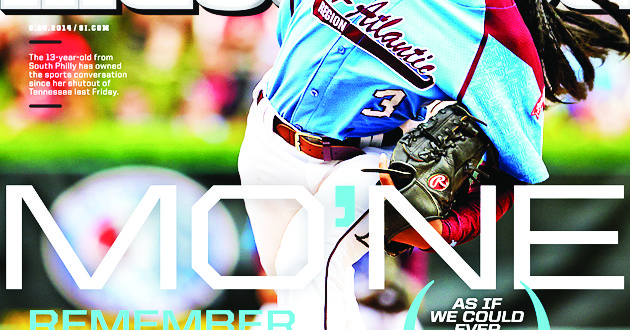
“You hit like a girl.” “You can’t play with the boys, you’ll get hurt.” “Boys are naturally better athletes.” Society encourages these culturally constructed ideas and messages to infiltrate the minds of young girls, essentially stomping on their aspirations with a giant sexist foot. Little girls and boys alike have dreams of becoming leaders, astronauts and professional athletes. But, as the adult mind sets in, those aspirations and beliefs slowly begin to slip from their fingers, falling through the cracks of their self-made limitations. So who are we, then, as a society, to limit them further, telling young girls that they “can’t”? Changing the way in which women and their athletic abilities are perceived, female athletes of the 21st century are serving as the vanguards to a movement that discredits all theories that women are incapable of equality in athleticism.
Just look at the case of Billie Jean King. Quite possibly one of the greatest tennis players to ever live, SHE changed the world on September 20, 1973, when SHE defeated Bobby Riggs, a former Wimbledon champion, in what was known as the “Battle of the Sexes.” Prior to this match, Riggs addressed questions about King with derogatory and misogynistic comments such as, “the best way to handle women is to keep them pregnant and barefoot” and “I’ll tell you why I’ll win. She’s a woman and they don’t have emotional stability.” Riggs stated that the role of the woman was to be in the “bedroom and kitchen, in that order.”
By defeating Riggs in this nationally broadcasted match, King showed society that women not only have the ability to compete athletically in professional sports on a televised stage, but that women can also defeat their competitors of the opposite sex equally and fairly. This event was essentially the trailblazer for further gender-equality and feminist action in a field formerly dominated by men.
In more recent years, women such as Danica Patrick, the first female racecar driver to ever lead the Indy 500 and win the pole position at the Daytona 500, and Mo’Ne Davis, the first girl to pitch a complete shutout in Little League World Series history, have broken the glass ceiling in male-dominated sports. Mo’Ne, age 13, following her Little League World Series accomplishments, became the first Little League baseball player in history to appear on the front cover of Sports Illustrated.
Proving that women can in fact not only compete, but prevail in high-profile sports exemplifies the ideal that women do not need to be “dumbed down” to a lower level than that of their male counterparts. However, despite these encouraging role-models showing the world the ability and capability of the female athlete, male athletes and men’s sports are nonetheless prioritized and given wider-ranging attention.
Annie Kiyonaga ‘15, a member of Stone Ridge’s Varsity Swim team, when asked whether or not she actively supports women’s professional sports, admitted “follow[ing] men’s sports more because [she has] been raised in a family that consists mainly of big football fans.” Annie O’Connor ‘16, a member of the Varsity Field Hockey and Junior Varsity Basketball teams, shared similar sentiments, stating “ I follow men’s sports due mostly to the fact that they are more widely broadcasted than women’s sports and constitute superior “entertainment” in America [such as] football and baseball.” If women’s sports were broadcast with the same level of frequency as men’s sports, and therefore respected by the media in the same way, would women’s sports be considered “American entertainment” and assume the same level of importance in our society as football players?
O’Connor continued, noting that “male sports are all that I have ever known because we live in a society that prioritizes men’s sports.” Unfortunately, due to this perception, female athletes and women’s sports are relegated by society as inferior, when really, if given the same exposure and level of importance, the public would gain a better understanding of what exactly women’s sports requires. Because women’s sports are publicly ignored in favor of men’s sports, the rigor, hard work, and dedication that it takes to be a female athlete is trivialized and rendered unimportant by a world that views anything other than physicality and brutality in sports to be uninteresting.
Powerful young athletes such as Mo’Ne Davis, Danica Patrick, and even our very own Katie Ledecky are gaining public recognition and are now changing the ways in which girls perceive themselves and their own abilities. They are teaching our generation that, in a society that is telling them they can’t, they can!
The responsibility to further this movement falls on our shoulders now, as young women that are “empower[ed] to serve with faith, intellect, and confidence.” As leaders, we need to recognize the value that we inherently have as athletes, and in doing so, not let society’s definition of women’s sports diminish our efforts. We must continue to break down the gender barriers that have thus far come to separate the world of sports.

Leave a Reply